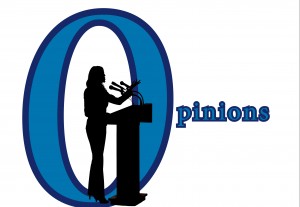Since President Barack Obama took office five years ago, he has consistently labeled income inequality as the “defining challenge of our time.” In last week’s State of the Union address, Obama once again reinforced his position on the issue by calling for more federal intervention to solve this dilemma. He claims that the long-term unemployed are not lazy or lacking motivation, but that they are “coping with the aftermath of the worst economic crisis in generations.” Unfortunately, Obama has failed to realize that his policies are actually prolonging this situation.
Obama has been correct on one thing: The sluggish incomes of the middle class are impeding many Americans in the lower classes from obtaining better, high-paying jobs. However, every time he mentions this statement, a few other facts seem to slip his mind.
The combined trends of increasing income inequality and decreasing economic mobility have worsened incredibly over the last five years. The Census Bureau recently reported that for the first time since 1965, the poverty rate has remained above 15 percent for three consecutive years. The median household income is down 4.4 percent from 2009 and for African American households, 11 percent.
After five years of “recovery,” over 46.5 million Americans still live in poverty. Ninety-one million Americans are not even in the labor force.
Of course, the leftist quest to blame someone other than their own policies for America’s economic ills will continue, but the real reason why more people are living in poverty today than when Obama took office is because of our government’s foolish policies. The solution has, and always will be, more government power. Has it dawned on Washington that possibly a pro-freedom agenda of tax and regulatory liberalization might be slightly more effective?
The eruption of federal regulations, deficiency of corporate tax reform, indecision of federal law ratification and disastrous rollout of health care reform have all contributed to one of the greatest wet blankets to business and consumer confidence in America’s history. The most efficient way to escape poverty is to get a job. Yet the unemployment rates have been persistently high over the last five years.
In several of his recent speeches, including last week’s State of the Union, the President has made a plea to Congress for an extension of unemployment benefits. According to the President, America needs this extension “because it will create jobs, and voting against it does not.” Obama has degraded opposing Republicans by accusing them of “abandoning our fellow Americans” and being “just plain cruel.”
Obviously, our President has forgotten how unemployment benefits are financed nowadays. Each state is responsible for financing these benefits, but because of our enormous debt problem, the states are forced to borrow this money from the federal government. Since these debts have not been repaid, the federal government is then forced to impose payroll tax hikes, which has been the case for the last decade. An introduction to economics class teaches us that higher payroll taxes are never good for job growth and hit the working poor and middle classes the hardest.
However, Republicans are far from creating a feasible solution. The incompetence and partisan gridlock has moved the right wing nowhere. They continue to maintain that spending cuts should be used to fund the unemployment benefits, but the ambiguity of their proposal and refusal to compromise has caused the party to fail miserably.
Instead, a solution to both party’s inability to successfully implement a concrete solution to the economic woes of this country should go something like this:
Most people can agree that some form of government assistance can be effective in keeping families out of poverty, especially when a family member is laid off or moving to a new job. Americans do not want to see a government give a handout, but a hand up.
No Republican is debating whether the government should supply benefits to people in need. The debate is actually in regards to the timeframe of those benefits. The individuals receiving those benefits eventually need to seize an opportunity that will allow them to be independent of government subsidies.
Placing reasonable limits on what is labeled as temporary is not cruel, cheap or insensitive.
Let the left worry about how to make the rich poorer; the GOP, on the other hand, should be concerned with how to make the poor richer.











